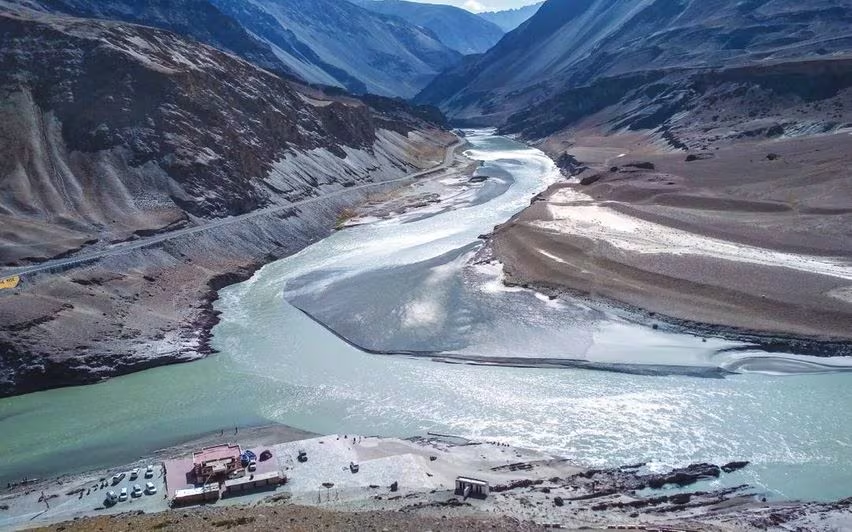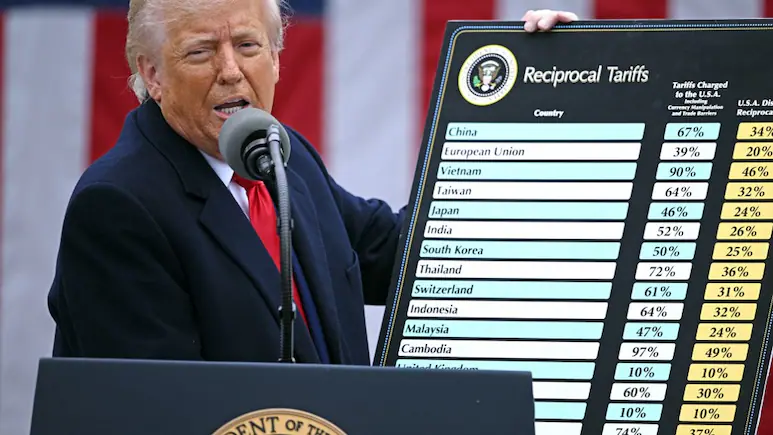In a significant development that has sent ripples across South Asia, India recently announced the suspension of the decades-old Indus Waters Treaty with Pakistan. This landmark water-sharing agreement, signed in 1960, has been crucial for managing the waters of the Indus River system between the two countries. India’s decision comes in the aftermath of a terrorist attack in Pahalgam, Kashmir, which resulted in numerous civilian casualties. Let’s explore what this means for Pakistan’s agriculture, urban water supply, and power generation – three sectors that heavily depend on the waters regulated by this treaty.
What is the Indus Waters Treaty and Why Does It Matter?
The Indus Waters Treaty was signed in 1960 after nearly a decade of negotiations facilitated by the World Bank. The agreement divides the six rivers of the Indus Basin between India and Pakistan:
- Eastern Rivers (Ravi, Beas, and Sutlej): Allocated to India
- Western Rivers (Indus, Jhelum, and Chenab): Primarily allocated to Pakistan
This water-sharing arrangement has been hailed as one of the most successful examples of international cooperation, surviving multiple wars and periods of intense diplomatic strain between the two nations. Under the treaty, Pakistan receives approximately 80% of the total water flow from the Indus River system, highlighting its critical dependence on these waters.
Why Has India Suspended the Treaty?
India’s decision to hold the Indus Waters Treaty in abeyance stems from multiple factors:
- The immediate trigger was a terrorist attack in Kashmir that India alleges had support from across the border
- India’s Foreign Secretary stated that the suspension would remain until Pakistan “credibly and irrevocably ceases its support for cross-border terrorism”
- Pakistan’s refusal to engage in bilateral negotiations for modifying the treaty despite India’s repeated requests in 2023 and 2024
- Growing concerns about the treaty’s effectiveness in addressing climate change impacts
Impact on Pakistan’s Agriculture: The Breadbasket at Risk
Pakistan’s agricultural sector faces the most severe consequences from this India-Pakistan water dispute. Here’s why:
- About 80% of Pakistan’s cultivated land depends on the Indus system for irrigation
- An astounding 93% of water from the Indus system is used for agricultural purposes
- The Western Rivers (now under suspension) are crucial for irrigation during critical sowing and harvesting seasons
The potential halt in regulated water flow could devastate crop yields, threatening food security for millions of Pakistanis. This Pakistan irrigation crisis is particularly concerning given the country’s limited water storage capacity – estimated at only 10% of its annual water share under the treaty.
Urban Consequences: Cities Facing Water Scarcity
Major Pakistani cities rely heavily on the Indus River system for drinking water and municipal needs:
- Karachi, Pakistan’s largest city and economic hub, sources about 85% of its water from the Indus River
- Other major urban centers like Lahore and Multan also depend significantly on this water source
- Pakistan already faces serious groundwater depletion, leaving few alternative water sources
If the Indus Waters Treaty suspension leads to reduced water flow, these urban centers could face severe water shortages, potentially triggering social unrest and public health crises.
Power Generation Issues: Energy Security Threatened
The suspension’s impact extends to Pakistan’s energy sector, where hydroelectric power in Pakistan plays a vital role:
- Major hydroelectric plants like Tarbela and Mangla dams are situated on the Indus and Jhelum rivers
- Hydropower contributes approximately 25% to Pakistan’s total installed electricity capacity
- The suspension could halt the flow of approximately 39 billion cubic meters of water annually from India to Pakistan
Reduced water levels in reservoirs would exacerbate existing power shortages, affecting industries, businesses, and households across the country. This energy crisis could compound the agricultural and urban water challenges, creating a perfect storm of resource scarcity.
Legal and Diplomatic Fallout: Uncharted Waters
The legal standing of India’s decision remains contentious. The Indus Waters Treaty itself doesn’t contain provisions for unilateral suspension, and any modification requires mutual agreement between India and Pakistan. Some experts suggest India’s move might contravene international laws concerning the rights of upper and lower riparian states.
Pakistan’s response has been forceful:
- Officials labeled India’s move as an “act of water warfare”
- Pakistan announced it would hold all bilateral agreements with India in abeyance
- Trade with India was suspended, along with the closure of airspace for Indian airlines
The World Bank’s role in the Indus Treaty could become crucial once again, as it was instrumental in brokering the original agreement. There are indications that the United States and the World Bank might attempt to mediate to prevent a complete breakdown of the treaty.
Climate Change Concerns: An Additional Complication
The Indus Basin is already facing significant water stress, with its aquifer considered one of the most over-stressed globally. Climate change in the Indus Basin is expected to further strain water availability due to:
- Accelerated glacial melting
- Increasingly erratic monsoon patterns
- More frequent extreme weather events
These environmental factors add another layer of complexity to an already tense situation. India has cited these changing environmental realities as one reason why the treaty needs revision.
Conclusion: A Watershed Moment for South Asia
India’s suspension of the Indus Waters Treaty marks a critical turning point in water politics in South Asia. While the immediate trigger appears to be security concerns, the decision reflects broader issues of transboundary water management in an era of climate change and increasing resource scarcity.
For Pakistan, the stakes couldn’t be higher. Its agriculture, urban centers, and power generation all face potentially devastating impacts if the treaty remains suspended for long. This situation underscores how river sharing conflicts can quickly escalate into broader geopolitical tensions, especially between countries with complex historical relationships. As both nations navigate these uncharted waters, the international community, particularly the World Bank, may need to play a critical role in facilitating dialogue. The future of one of the world’s most successful water-sharing agreements now hangs in the balance, with implications not just for India and Pakistan, but for transboundary water cooperation worldwide.













